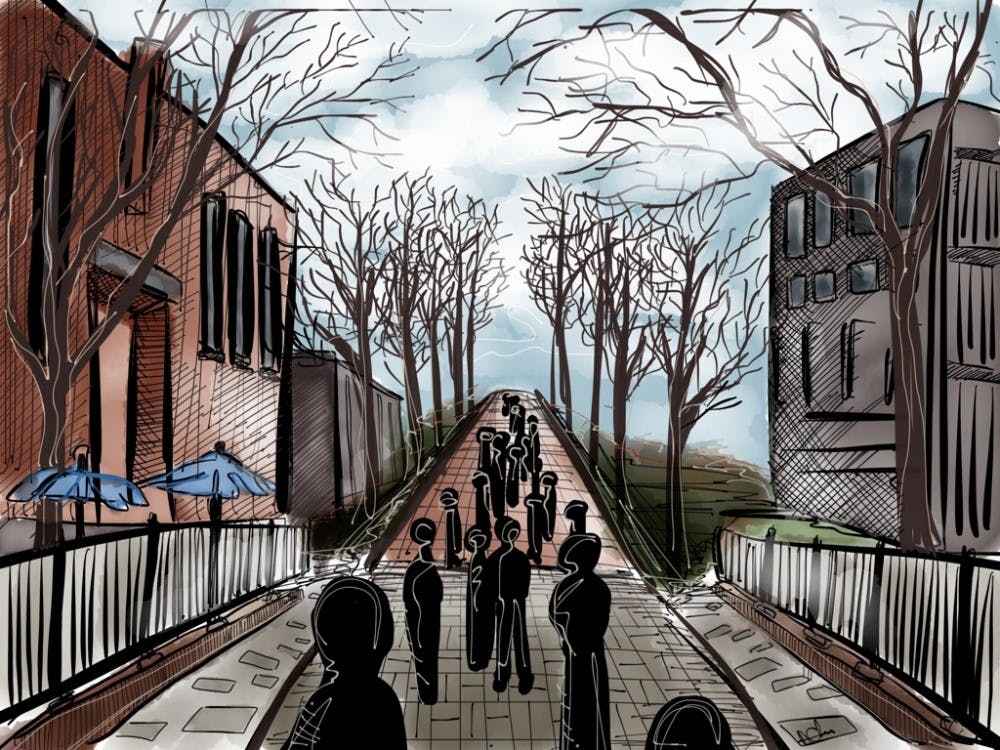Illustration by Amy Chen.
It was not a suicide attempt. I was not trying to kill myself.
At the beginning of the fall semester, I cut my left wrist and soon after found myself in the emergency room at HUP. After a psychiatric evaluation that lasted several hours, I was released into the custody of my parents.
Ten days later, I returned to the hospital, this time to Belmont Comprehensive Treatment Center, a mental health facility about 15 minutes outside of Philly. There, I spent a week in the mood disorder unit, a place for those struggling with anxiety, depression, and other personality disorders. I engaged in group therapy sessions and met with a team of doctors, medical students and social workers on a daily basis.
I was diagnosed with general anxiety and obsessive–compulsive disorders, accompanied by bouts of depression, when I was 17. I have been working with a psychologist for four years now, and a psychiatrist for one.
That said, I don’t think of myself as having an illness. I consider my anxiety and OCD parts of myself, parts that ebb and flow—sometimes I’m in control of the emotions that these disorders intensify, and sometimes I’m not. Like the tattoo I got my freshman year of college proudly declares: “it’s only a part of you.” These issues are not all of me. They do not define me.
As a Penn student, however, living with them has proved nearly impossible at times. The various kinds of support—which in a few cases, meant no support at all—I received upon returning to campus after being hospitalized speaks to the urgent need for us to engage in a productive conversation about mental health.
Some people are no longer in my life because of what happened to me last semester. On the other hand, I’ve been humbled by the friendships that have withstood the strain my issues have put on them.
I’ve found that working through problems that have plagued me for years has actually enhanced my ability to manage the various responsibilities I have here at Penn. As a result of my anxiety and depression, I’ve looked to the other parts of myself to find strength. For example, I revel in doing well in my classes—nothing makes me feel quite as accomplished as spending an afternoon in Fisher Fine Arts finishing a paper. I am grateful for the creative outlet that being an editor for Under The Button provides, and I value the relationships my sorority has fostered.
I take five classes, I identify strongly with several on–campus groups and I love to SABS at Tap or Harvest just as much as anyone else. In this way, I am very much a “typical” Penn student. However, it seems that other Penn students either struggle with the same issues as me, yet choose not to confront them, or are unable to relate to me because of their own fear.
We don’t know what someone in front of us in line at HubBub hopes to do upon graduating, with whom the kid sitting in recitation might be in an argument, or why the person running on the adjacent treadmill at Pottruck is exercising. We are all struggling with something. Some of us are just better at managing our thoughts and emotions than others. This is why it is of the utmost importance that compassion guides our actions, because ignorance leads to alienation.
The day after I was released from the hospital, I went to class. I’m not ashamed. I refuse to let my demons inhibit me from having the traditional Penn experience I want.







